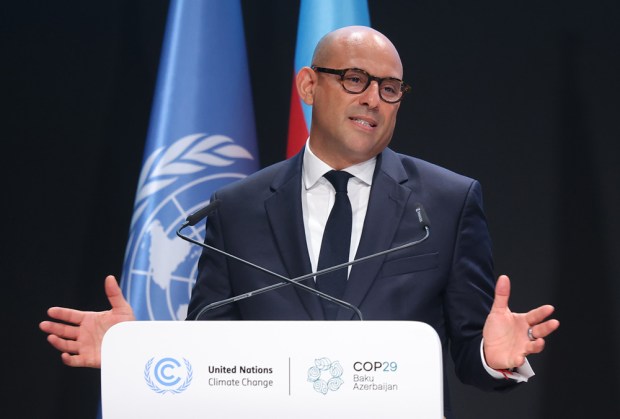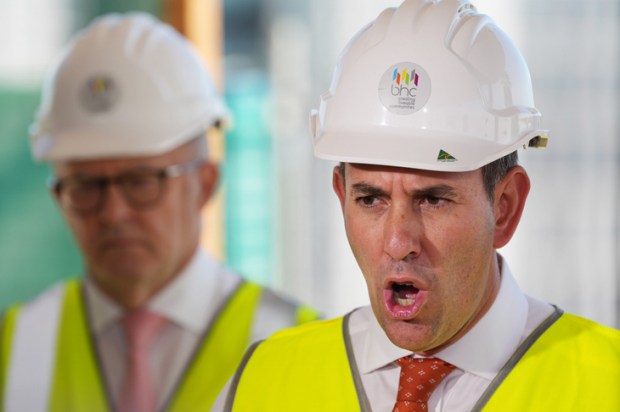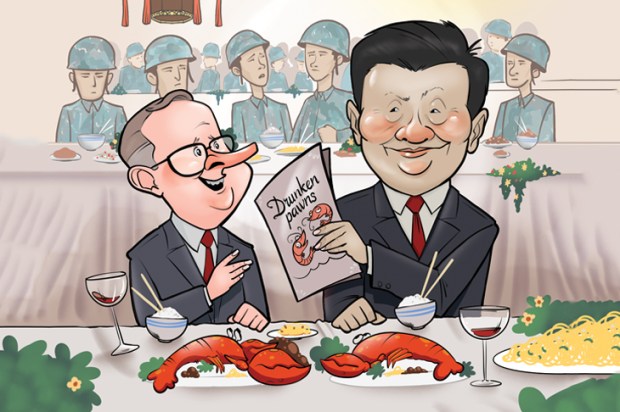‘Few international problems in the postwar period have proved as difficult for Australia as the development of a friendly and effective policy towards Indonesia.’ So wrote the distinguished diplomat Sir Ian Watt in 1967.
The veteran Australian ambassador and mandarin was referring to the diplomatic stand-offs over Jakarta’s annexation of West Papua in 1962 and the attempted coup d’etat and successful counter-coup by the Indonesian army in 1965. But his remark could have been applied to Canberra’s dealings with our northern neighbour in the near half-century since Sir Ian wrote his important book The Evolution of Australian Foreign Policy.
From the invasion of East Timor in 1975 and the Dili massacre in 1991 to the scrapping of the security treaty in 1999 and the fracas over the West Papua refugees in 2006, Australian–Indonesian relations have been defined by insecurity and tensions. Add to this the fact that no two neighbours anywhere on earth are so comprehensively unalike — we differ in language, culture, religion, history, ethnicity, population size and in legal and social systems — and you can see why both nations have long spied on each other.
Which brings us to the diplomatic crisis over the revelations that our intelligence attempted to listen in on President Susilo Bambang Yudhoyono’s telephone conversations in 2009. Tony Abbott has refused to apologise or even explain the phone tapping; in retaliation, Jakarta has pulled the plug on all military co-operation. What to make of the gathering storm?
On the one hand, it is easy to defend unashamedly the notion of a little snooping. Many Australian lives have been lost or threatened by terrorist attacks, bombings and even military action from Bali to Jakarta to East Timor. It is the duty of our intelligence agencies to do all they can to safeguard Australian lives, using whatever tools at their disposal, Indonesia’s 3G network included.
For all their expressions of outrage, moreover, the Indonesians have long known that Washington and Canberra have been eavesdropping on their territory. Indeed, our embassy in Jakarta was the location of the first overseas station of the Australian Secret Intelligence Service six decades ago, and our spooks have since made Indonesia their top priority. Not that spying is a one-way street. General Hendropriyono, one of Indonesia’s own former intelligence chiefs, boasted on Australian TV in 2004 about how Indonesia regularly bugs Australian politicians, and expects the same in reverse.
On the other hand, the latest revelations do play into Indonesia’s sense of nationalism, which reflects an atavistic resentment against interference by Western powers. It is a point that most foreign affairs ministers have tried to recognise since the heady days of Indonesian decolonisation.
Fifty years ago, Sir Garfield Barwick urged that ‘in judging what our neighbours say, we try to place their words in their historical and local setting.’ Among people who have had to fight for their independence, he suggested, anti-colonialism is an emotion deeply and sincerely felt — something which touches their hearts more than minds. That is why public comments on Indonesian affairs from Australian diplomats and political figures, Labor and Coalition alike, have for the most part showed considerable restraint and consideration.
Critics, such as our cover writer John Birmingham, are prone to denounce Australian policy towards Indonesia as ‘appeasement’. Never mind that Indonesia, the largest Muslim country in the world, is an archipelago athwart busy sea lanes capable of interfering with the world’s shipping, merchant and naval. Never mind that we need Jakarta more than talk-back radio callers care to admit, in counter-terrorism as well as people-smuggling operations.
In fairness, the critics are right to say that an apology to Jakarta is fraught with all sorts of danger. It would damage the age-old principle of neither confirm nor deny. And if the Edward Snowden scoops reveal more acts of espionage, it would justify more apologies from the PM and Foreign Minister. Yet neither Tony Abbott nor Julia Bishop was running our foreign policy in 2009 when the phone-tapping took place.
There is no doubt that the current deterioration in this critical relationship will be damaging to Australia national interests, at least for the short term. Limiting the damage will be a real test of Mr Abbott’s skills as a statesman. His twin imperatives will be to continue to protect Australian interests steadfastly while allowing, somehow or other, the Indonesians and their President to save some face — an age-old Confucian/Buddhist principle.
In the current climate, there is much to be said for a policy of benign calm and detachment until the poisoned atmosphere of the spy revelations has passed. As the distinguished foreign affairs commentator Greg Sheridan has suggested, perhaps Mr Abbott should exercise the essence of conservative wisdom: ‘Don’t just do something, stand there.’ Nod gravely, listen carefully, smile when appropriate, express empathy, but do nothing to cripple your own capabilities. For a bloke who stands against the tyranny of the relentless 24-7 cycle, the PM may be well placed to embrace this sound advice.
Got something to add? Join the discussion and comment below.
You might disagree with half of it, but you’ll enjoy reading all of it. Try your first month for free, then just $2 a week for the remainder of your first year.












